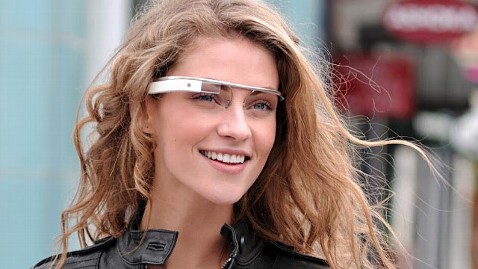Google Glasses: Will You Want Google Tracking Your Eyes?

Image Credit: Google
The world was stunned by the first real look at Google's Project Glass. In a video released by the search giant, we got a a captivating look at how its glasses could help you get a weather forecast by looking up at the sky, or find out about subway delays just by standing outside the station.
But while many were blown away at the video Google released Wednesday, others started to ponder what Google could ultimately do with the technology.
One of those people was Jonathan McIntosh, who calls himself a pop culture hacker and transformative storyteller. McIntosh put together the video below. It is based on the one released by Google, but with ads overlying everything one saw in Google's video.
"To be honest, when I first saw the Google Glasses video I thought that was really cool," he said. "But a moment later, I thought, 'Oh God, there are some very serious implications in terms of privacy and data mining.'"
Google has, of course, been collecting data for a long time. They know what you search, who you email (if you use its Gmail), what you watch on YouTube, and where you're going if you use Google Maps. It uses that information to provide more personalized search results as well as more targeted advertising.
That advertising part is a big piece of the puzzle. It's ultimately how the company makes money. The Internet giant states in its policy that it "makes money without doing evil" with your personal data.
"Google's an ad company. I think it's something people should be mindful of and critical of, especially in the frame of these awesome new glasses," McIntosh said.
A former Google exec, James Whittaker, recently wrote about how Google's mission was becoming too focused on ads and competing with Facebook's targeted ads. He left to go work at Microsoft. Additionally, on March 1, 2012 Google's privacy policy was changed to allow the data collected from your activity to be shared across its services.
Peter Swire, a privacy and cybersecurity expert and professor at Ohio State, has similar worries when it comes to the glasses. "Advertising won't skip this platform, but there will be ongoing battles about how pervasive the ads will be and how users will turn them off."
Swire also brings up the tracking issue of the glasses and the fact that Google's Android software does not give the user a choice about location tracking for each app; it's a system-wide setting. "Will Google Glasses use the same all-or-nothing approach?" Swine asked. "We have got 'Do not Call' and 'Do not Track;' we will see if we get 'Do not See.'"
Of course it is too early to tell what Google will do with the glasses. The company wouldn't comment on advertising in Project Glass. It has said the glasses are merely prototypes right now, although it does plan to start testing them in public this summer.
Jeff Jarvis, a media journalist and author of "What Would Google Do?" gave an answer that Google probably would about its glasses: "You don't have to wear them if you don't want to."
Google's Vic Gundotra, senior VP of social business at Google gave a similar answer when asked about tracking and privacy issues related to its Google+ social network in March.
Obviously, there are additional issues that come along with such a groundbreaking technology that is so different from the pocketable devices we are used to. You can imagine them: driving with the glasses on, bringing the glasses into a restricted space, etc.
"Are there potential bad uses?" Jarvis said. "Sure there are, but I think I trust society's intelligence to figure it out. I say Google's still a good actor."